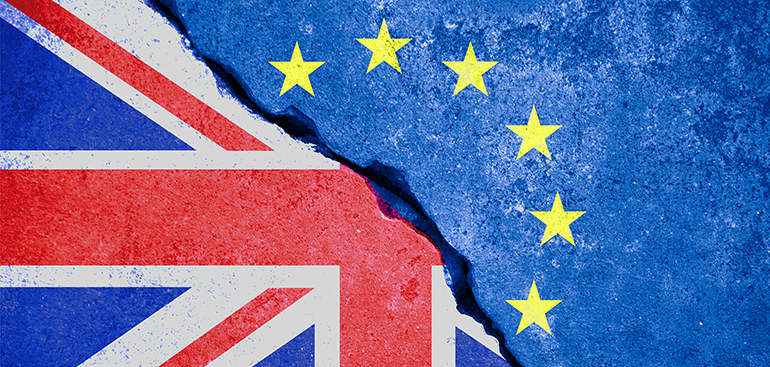
After more than three years with negotiations, the UK left EU 31st of January 2020. Brexit impacts the relationship between Norway and UK on a wide range of areas. Norwegian businesses have to ensure that they are prepared for and have done the necessary adjustments prior to 1st of January 2021. But what’s new? In this article, RSM sums up some of the most important changes.
The reason why Brexit has such major impacts, is that Norway’s relationship to UK from 1st of January 2021 no longer is regulated by the EEA agreement or the withdrawal agreement. The EEA agreement secures EEA citizens the same rights and obligations in terms of free movement of goods, people services and capital. When UK no longer is a part of this agreement, the two countries have to negotiate new agreements which cover all these areas. Since this is a complex and time consuming work, all of these agreements will not be in place by 1st of January 2021.
Trade agreement and temporarily trade agreement with the UK
Norway and UK are negotiating on a trade agreement that will safeguard future trade between the two countries. Such agreement will not be ready to come into force within the beginning of 2021. While waiting for this, Norway, Iceland and the UK have signed a temporarily trade agreement which will be effective from 1st of January 2021 and until a full trade agreement can come into force.
Tax impacts of Brexit
The EEA agreement does not cover tax, even though Norway still has a responsibility to ensure that Norwegian tax regulation is in accordance with the four freedoms and the state aid regulatory in EU. In addition, Norway has entered into tax agreements with numerous countries around the world to avoid double taxation and to ensure compliance with Norway’s obligations under other international agreements on the tax field. Such agreements are negotiated and entered into directly between the countries in question, and will therefore not be affected by Brexit.
Therefore, as a main rule, we do not see huge impacts of Brexit on the Norwegian tax rules. Some changes are still to be noticed:
VAT and import duty
As a consequence of British government recently updating their guidelines for importation of goods to the UK, Brexit will have some impact on VAT and import duty with effect from 1st of January 2021. RSM has written an article on these changes. So far, this article is only available in Norwegian, but RSM is happy to assist anyone who reach out to us with any questions regarding this.
Exemption method, reorganization without tax effect, group contribution etc.
Both the exemption method, reorganization without tax effects across borders and the rules for group contributions includes special rules for EEA countries and may be effected by Brexit. RSM has previously written an article which sums up and discuss how Brexit may impact these set of rules. So far, this article is only available in Norwegian, but RSM is happy to assist anyone who reach out to us with any questions regarding this.
Impacts of Brexit when company management lives in the UK or are UK citizens
Norwegian companies with general manager or board members with UK residency or UK citizenship, risk that they from the 1st of January 2021 no longer fulfil the requirements to residence in Norwegian company legislation. Have a look at RSMs article on how Norwegian businesses with company management in UK may be affected by Brexit here.
Norwegian businesses with British employees
Since the UK no longer is a part of the EU/EEA, British citizens will change status in Norway from being a EU/EEA citizen to a non-EU/EEA citizen from 1st of January 2021. The consequence of this is that British citizens living and working in Norway from 2021 have to apply for a residence permit. Read more about this in RSMs article in English here.
Further reading on Brexit
RSM keeps you up to date on the latest news on Brexit and what consequences Brexit may have for Norwegian business life.
You can find our related articles on Brexit here.

